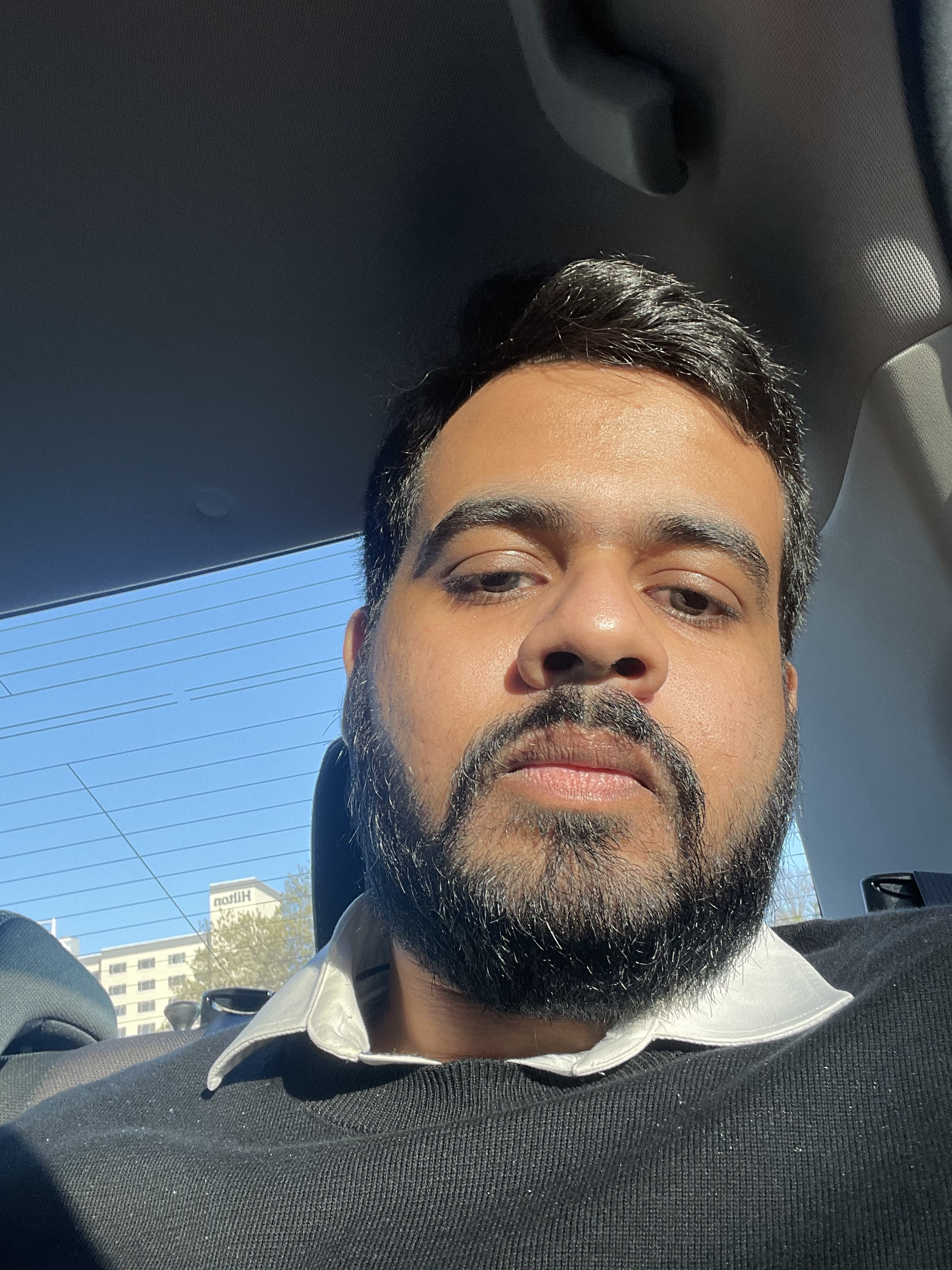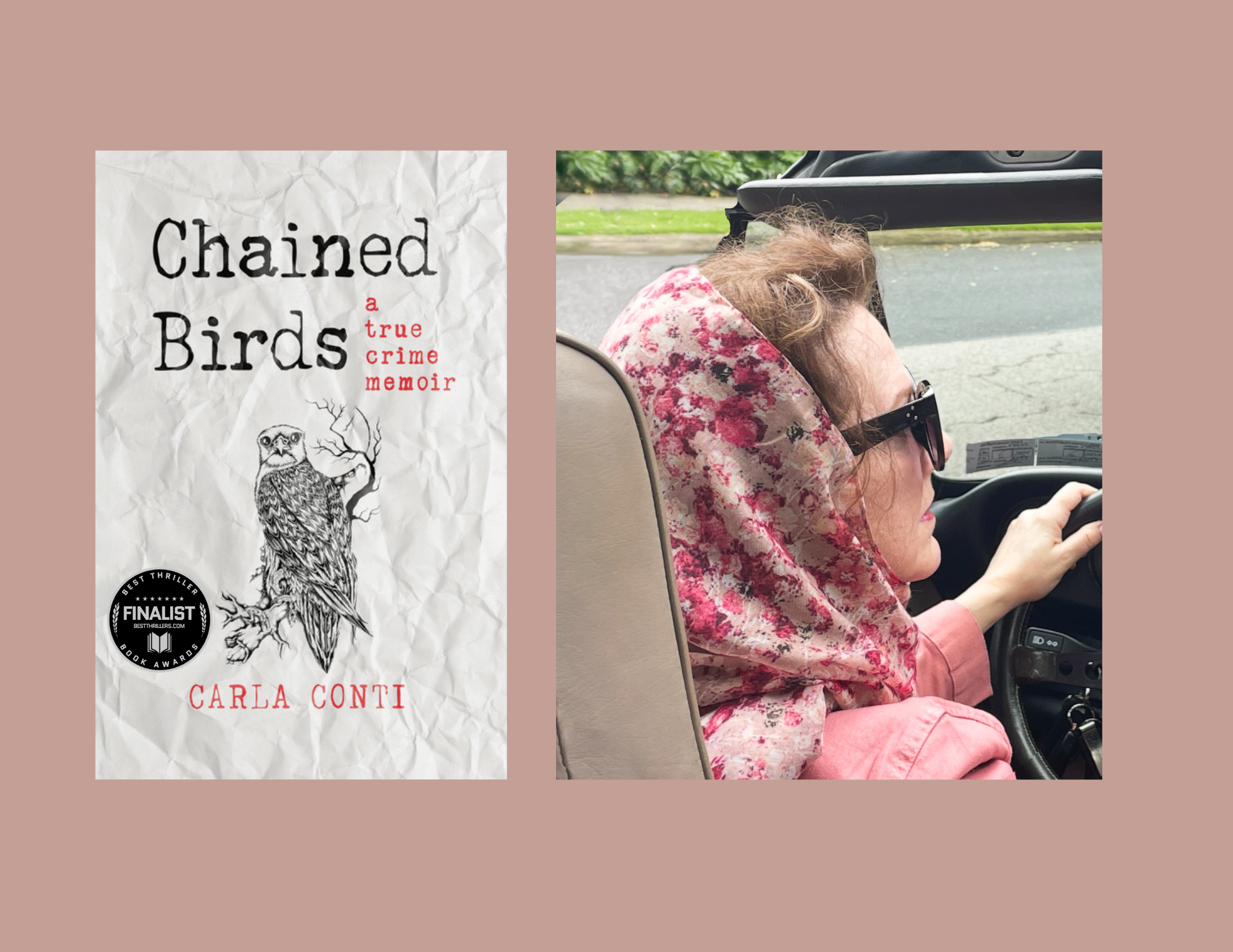Carla Conti is a true-crime journalist, storyteller, and prison reform advocate who previously covered the police beat and criminal courts as a newspaper reporter in the Midwest and Northeast. She is the author of Chained Birds, a true-crime memoir that chronicles the abuses and corruption at USP Lewisburg’s Special Management Unit and exposes a horrific experimental prison program with the help of an inside source. Chained Birds has been named as a finalist in the 2024 BestThrillers Book Awards.
Tahsin Ahmed: How did you get into journalism? Did you begin as a crime journalist, or did you start in a different area before diving into true crime?
Carla Conti: I studied journalism in college with the idea of going into broadcast news. But then I found my way into print journalism covering the police beat and criminal courts for a few newspapers in the Midwest. These assignments gave me my first taste of true-crime reporting, and I’ve been hooked ever since.
TA: As a debut author, did you find that writing this memoir differed from your journalistic work?
CC: When I finally decided to write Chained Birds after more than a decade of indecision, I realized it would not just be a prison exposé told through the eyes of an insider. For better or worse, I was part of the story, and it took me a long time to recognize this. Once I accepted this, I began to weave my personal experiences, feelings, and interactions into my outline of the journalistic account. And this genre-blending merger of true crime and memoir was the version my publisher, WildBlue Press, was interested in.
TA: The prison experimental program you’ve exposed is shocking. What was the most challenging part of uncovering this story?
CC: The element involving prison gangs was the most challenging to write about. While I was drafting this book, two prison gangs issued “hit orders” against Kevin Sanders, the inmate at the heart of my story. As a result, both the lawyer who worked on Kevin’s case and I have been imperiled by association—this is mainly why it took me so long to get this story out. Neither gang is happy about this tell-all book surfacing, and, as one might understand, is the reason why I wrote it under a pen name.
TA: You’ve mentioned facing challenges, including threats aimed at silencing your work. How did you manage the emotional toll that comes with diving into such a dark and intense subject?
CC: For a very long time, I dealt with a tangential threat and then an actual threat by dropping the project. But even during those time periods when I was definitely not writing the book, I remained Kevin’s friend and advocate and kept in regular touch with him. So, I was never fully severed from the dark underbelly of the prison world. I think I compartmentalized my life to a certain extent, and probably having been a crime reporter helped inure me to the themes and details I continually learned about.
TA: How do you hope readers will respond to your story? Are there particular takeaways or actions you hope this memoir inspires?
CC: Primarily, I hope readers come away with a better understanding of some of the failings of our criminal justice and federal prison systems. Incarcerated men and women are often a forgotten segment of our society and have little agency. I have tried to give a voice to a small sector of the voiceless, and I hope Chained Birds adds to that conversation.
Childhood abuse and addiction are other themes in the book, and I’ve had early readers tell me those sections resonated with them or they identified with one or more of the abuse victims. I hope I have done justice to such characterizations and understanding.
Lastly, I’ve had some strong reactions to the political backdrop of the last third of the book, which covers the Trump years up through mid-2024. It’s not much of a spoiler to say that my lawyer friend Scott (who brought me into Kevin’s case) and I are polar opposites politically and that I recount both of our personal feelings and some related drama. I’d love it if one takeaway from Chained Birds could be that political rivals, passionate about their causes, can maintain a friendship even in today’s deeply divided nation.
TA: What was it like recording the audiobook yourself? Did narrating your own story add any new layers or insights to the memoir for you?
CC: Recording my audiobook was one of the most exhilarating, exhausting, and fulfilling tasks I’ve ever undertaken. It is not for everyone, but it can reap rewards for authors of memoirs.
I was fortunate to have the time and support of my publisher to do it and have a studio referral from a fellow Philadelphia debut author who recorded her book a few months before I did. I cannot sing enough praises for my sound engineer, Jeff King, at Baker Sound Studios in Center City. As a newbie, I valued his guidance and direction, and he filled me with the necessary confidence that what we were creating would be well worth it.
There is evidence to suggest that audiobook listeners tend to like hearing memoirs narrated by their authors. Honestly, this precept helped keep me going during periods of self-doubt. I am hoping that listeners of the Chained Birds audiobook will appreciate the genuineness of hearing me tell my story, knowing that I’m not a professional narrator. Authenticity over perfection is how we’re billing it.
TA: For a bit of fun—if you could go back in time and create a similar true-crime memoir centered on any historical figure involved in a notorious case, who would it be and why?
CC: I think I would take a break from blood and gore and seek a story that had something to do with an art theft or a jewelry heist. Or maybe I’d pile onto the search for who really is the Bitcoin King Satoshi Nakamoto.
I just read a fascinating article in the Wall Street Journal about a family member of the Hermès fashion dynasty, who was once worth $13 billion, but says he was swindled out of his family’s inheritance. Potential culprits include his lawyer and handyman … it’s a terrific mystery, and the billionaire-turned-pauper lives in the Swiss Alps. My family and I were expats in Geneva for three glorious years, and any chance to go back to Switzerland, I’ll take it!
TA: Finally, what’s next for you as a writer? Do you see yourself exploring more stories in the true crime genre, or do you have other projects in mind?
CC: I do have outlines for about half a dozen books—most are nonfiction with a true-crime element, and one is a mystery/thriller. I can give you hints about my next two most likely projects, and I don’t even know which will come first.
I mention in Chained Birds a true-crime story that took place in Northeast Pennsylvania in the mid-1990s that I got pretty close to publishing but didn’t. I kept all of my material, though, and just recently unearthed decades of notes, court transcripts, newspaper articles, and interviews on micro cassettes. The story involves a 1970s love triangle and murder, which resurfaced in the 1990s with a body exhumation. An author with a backlist wrote a book about the case at the time and is the reason my then-literary agent couldn’t sell my proposal. But there were new case developments after that book came out, and I have some different angles I’d like to explore, so I feel I can put my own stamp on that story now.
Another book I’ve partly researched is a three-faceted look at my Italian heritage that involves a family true-crime story. During the first year of COVID in 2020, I started the process of obtaining Italian citizenship through my grandmother. I did this while simultaneously filling in my Ancestry.com family tree, which led to a shocking DNA revelation. This, in turn, led to a clearer understanding of a family true-crime scandal whose repercussions circled back to the family tree drama. I’d like to weave the two stories—my quest for Italian citizenship and the family tree/true-crime saga—with a narrative about my grandmother’s extraordinary life. In 1919, at the age of 17, she left Italy for America, where she was placed into an arranged marriage with another Italian. She gave birth to 11 children (9 of whom survived), and she somehow managed to raise them on a shoestring, including when she became an impoverished widow (after my grandfather died in jail). She could stretch a pound of ground beef to feed an army, and her Sunday gravy with heavily breaded meatballs was a life force that I still dream about and miss terribly.
Learn more about Carla Conti on her website and purchase Chained Birds here.

